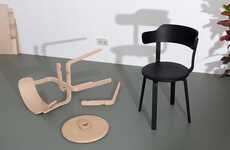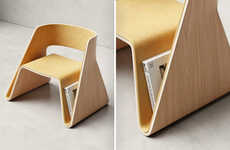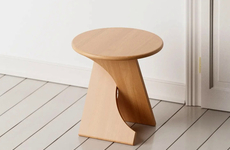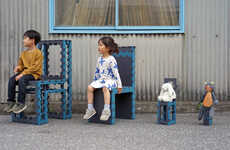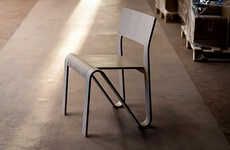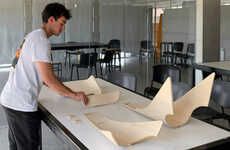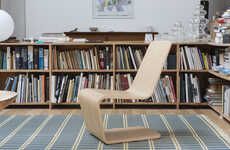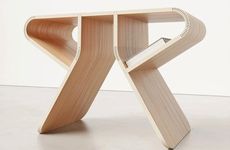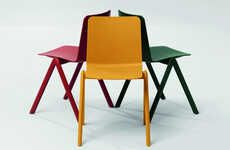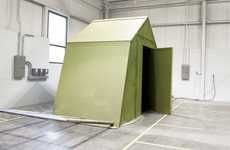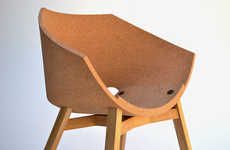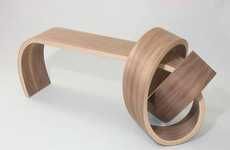
The Laser Chair Starts From One Panel and Slots Completely Together
Amelia Roblin — November 9, 2013 — Eco
References: madssl.dk & contemporist
The Laser Chair is a great exercise in resourcefulness. Mads Sætter-Lassen came up with this crafty seating solution during a quick week-long assignment at the Royal Danish Academy of Fine Arts' School of Design. It uses a single piece of plywood and a laser cutter as the entire recipe for this piece of furniture.
With all of the components laid out, the challenge is to put them all together in a way that constructs the final object in these photos. Looking at a spread of the pieces, it actually doesn't appear as though it would be too difficult a task. A bit of logic will help you to sort out what goes where, and every element slots into the adjacent one. The Laser Chair requires no hardware to assemble it.
With all of the components laid out, the challenge is to put them all together in a way that constructs the final object in these photos. Looking at a spread of the pieces, it actually doesn't appear as though it would be too difficult a task. A bit of logic will help you to sort out what goes where, and every element slots into the adjacent one. The Laser Chair requires no hardware to assemble it.
Trend Themes
1. Sustainable Furniture - The Laser Chair's use of a single piece of plywood highlights the trend towards sustainable furniture manufacturing.
2. Laser-cut Design - The Laser Chair's use of a laser cutter to create intricate designs demonstrates the trend towards laser-cutting technology in furniture production.
3. Resourcefulness - The Laser Chair's inventive design highlights the trend towards utilizing minimal resources to create functional furniture.
Industry Implications
1. Furniture Manufacturing - The rise of sustainable furniture manufacturing presents an opportunity for companies to innovate their production processes and materials to reduce waste and promote eco-friendliness.
2. Woodworking - The use of laser cutting technology in woodworking presents an opportunity for companies to create intricate designs and increase efficiency in production.
3. Interior Design - The trend towards resourceful furniture design presents an opportunity for interior designers to incorporate creative and functional pieces that promote sustainability in their projects.
3.2
Score
Popularity
Activity
Freshness


